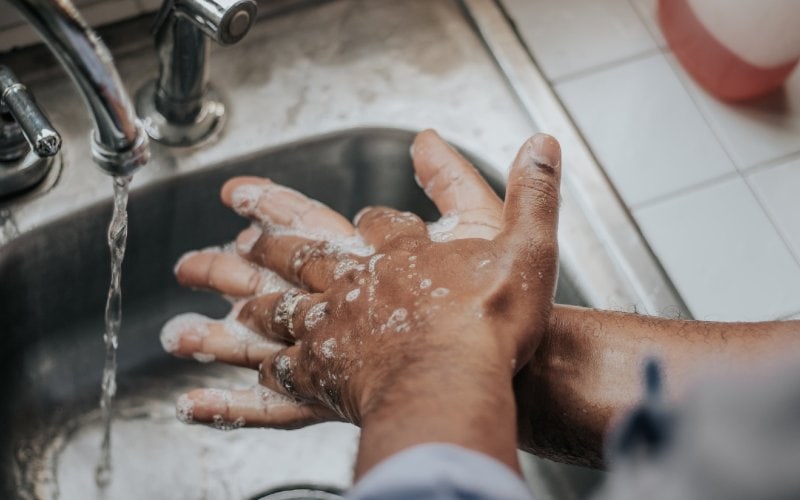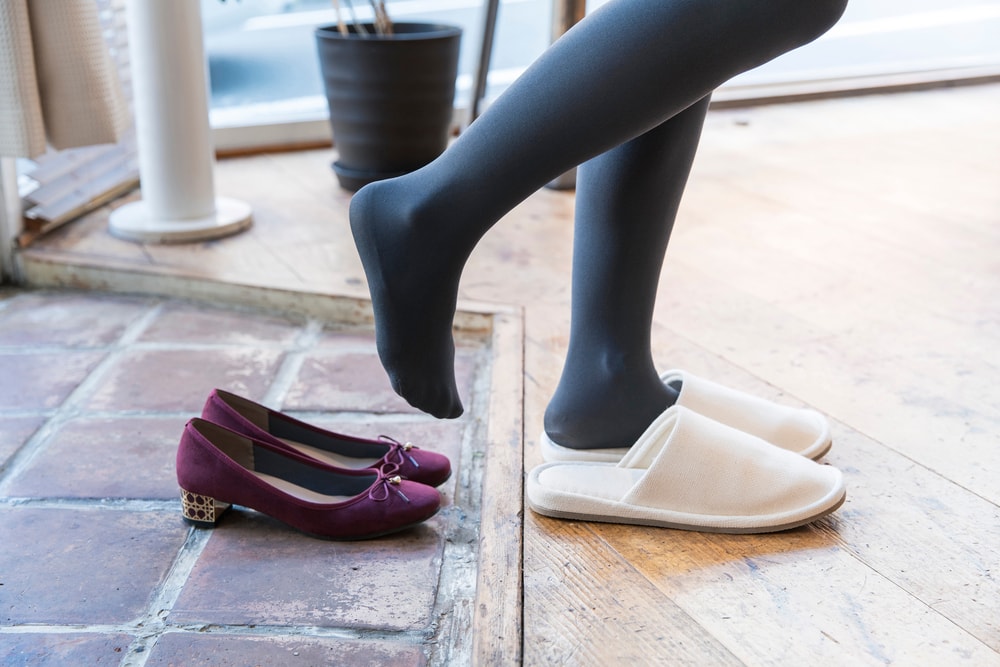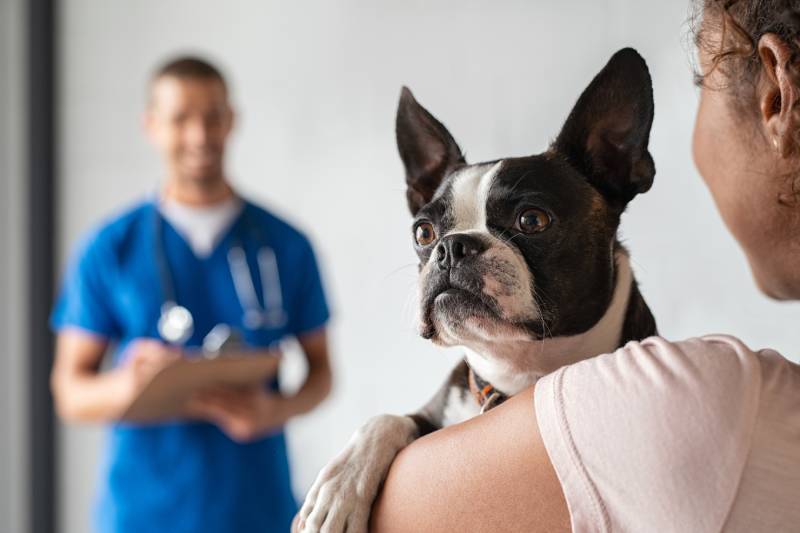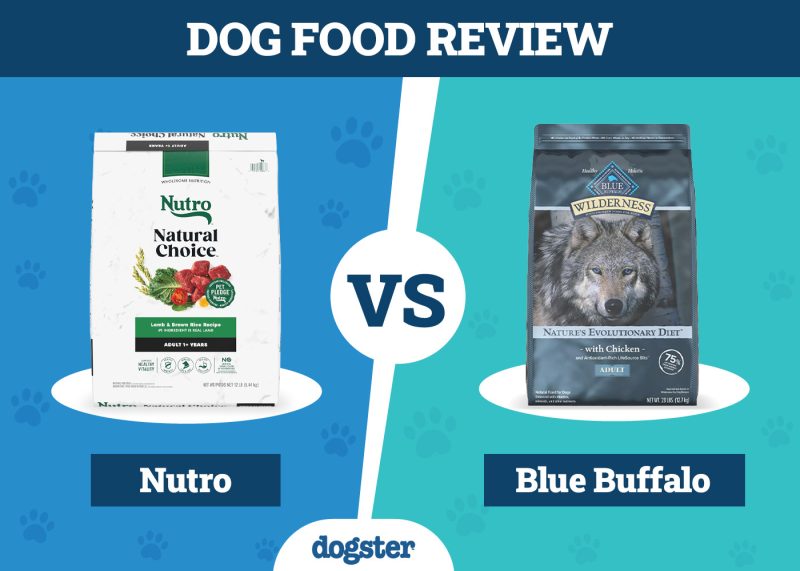In this article
Parasitic worms are disgusting, and no one wants ever to have to deal with them. But sadly, most dogs and cats have worms at a young age. And yes, they can pass the worms on to their humans. This is called a zoonotic infection, meaning it can pass from animals to humans.
Roundworms, hookworms, and whipworms are the most common transferable worms worldwide. Keep reading to learn more about how these worms affect humans.

How Do Dogs Get Worms?
If your dog has worms, it’s not because your house is filthy or because your dog is unusually sick. Dogs contract worms all the time, and it’s quite easy for them to become infested. Young animals are the most vulnerable to infestations and infections, particularly when puppies’ immune systems are developing. Also, if the mother is infested, she can give worms to her puppies even before birth or while nursing.
The cycle continues as infested pets defecate the eggs onto the soil or the floor. Animals that ingest the polluted soil or feces will then become infested, and the process starts again. This is a simplified version of the process. Some parasites need a third animal or intermediate host to develop from eggs to larvae, but the main idea here is that, ultimately, another dog will get infested. If you suspect your dog has worms, we recommend reaching out to our vet for advice.
If you need to speak with a vet but can't get to one, head over to PangoVet. It's our online service where you can talk to a vet online and get the advice you need for your pet — all at an affordable price!


How Worms Are Transferred From Dogs to Humans
Obviously, you are not eating dirt or dog poop, so how do humans become infected?
More often than not, humans contract worms in less obvious ways, such as:
- Eating contaminated fruits and vegetables
- Putting dirty objects in the mouth
- Touching contaminated dirt or sand
- Drinking contaminated water
Not all worms need to be eaten to jump-start the cycle. For example, hookworms only need to penetrate the skin, usually on the bottoms of feet, if you walk outside barefoot. Like puppies, children are more susceptible to parasitic infestations because they’re not as aware of basic hygiene practices as adults are. Children tend to put objects from the floor in their mouths, so they are more at risk.

What Are the Chances of Getting Worms?
In an updated 2023 study, the World Health Organization found that 24% of the world’s population had soil-transmitted parasites—1.5 billion people1! The most commonly infested parts of the world are sub-Saharan Africa, China, South America, and Asia. These are tropical and subtropical areas with poor sanitation and little access to clean water.
Our chances of contracting worms in the U.S. are much less than compared to these communities, but the risk is never zero.
How Harmful Are Worms to Humans?
Like any living creature, worms need nutrients to survive. Unfortunately, they take precious nutrients from their host, which can lead to malnourishment if not treated promptly. Worms can also put you more at risk of anemia and intestinal blockages. If you’re pregnant, you’re at an even greater risk. Thankfully, a few weeks on medications can eradicate most intestinal worm infections.

Signs of Worms in Humans
The most obvious sign is worms in your stool.
- Itchy anus
- Blood or mucus in stool
- Vomiting
- Fever
- Fatigue
- Dehydration
- Weight loss
- Diarrhea
- Abdominal pain
- Rash
Your doctor may want to test your feces to confirm that you have worms and decide on a treatment plan. Pregnant people should ask their doctor for further instructions about safe and effective treatments and precautions against animal parasites.

How to Protect Your House and Pets From Worms
Despite how easy it is to become infested with worms, it’s also just as easy to protect your house and pets with just a few simple habits.
Food
- Avoid eating raw meat.
- Allow cooked meat to rest for 3 minutes before consuming.
- Wash and disinfect produce.
- Avoid consuming any food that falls on the floor.
- Wash and clean preparation areas and utensils.
- Wash your hands when cooking and eating.

Outdoor Areas
- Regularly clean up pet feces outside.
- Never mow a lawn before removing feces.
- Obey leash laws.
- Thoroughly wash your hands after touching animals.
- Wash your hands after playing in the dirt or sandbox.
- Keep outdoor play areas blocked off from animals.
Indoor Areas
- Leave shoes at the door.
- Mop floors at least once per week.
- Leave purses off countertops and tables.
- Keep phones off countertops and tables.

Pets
- Wear gloves or use a plastic barrier when picking up pet waste.
- Have pets dewormed as per the veterinarian’s schedule.
- Start your puppy on a preventative program (vital for heartworm and tapeworms).
- Prevent any flea infestations in your pets.
How Long Until the Worms Die?
It helps to quarantine your dog so you can better control the spread of worms while they undergo deworming treatment. Deworming usually takes about 2 to 3 weeks, but a second round is typically needed to ensure that all worms are killed. This is called a deworming schedule.

Conclusion
Worms are repulsive, and the thought of having worms makes anyone feel squeamish. If your dog has worms, don’t panic. Just get them started on a deworming treatment immediately, and disinfect your house. Staying on top of the situation will help you conquer the infestation faster.
Featured Image Credit: Ground Picture, Shutterstock



















